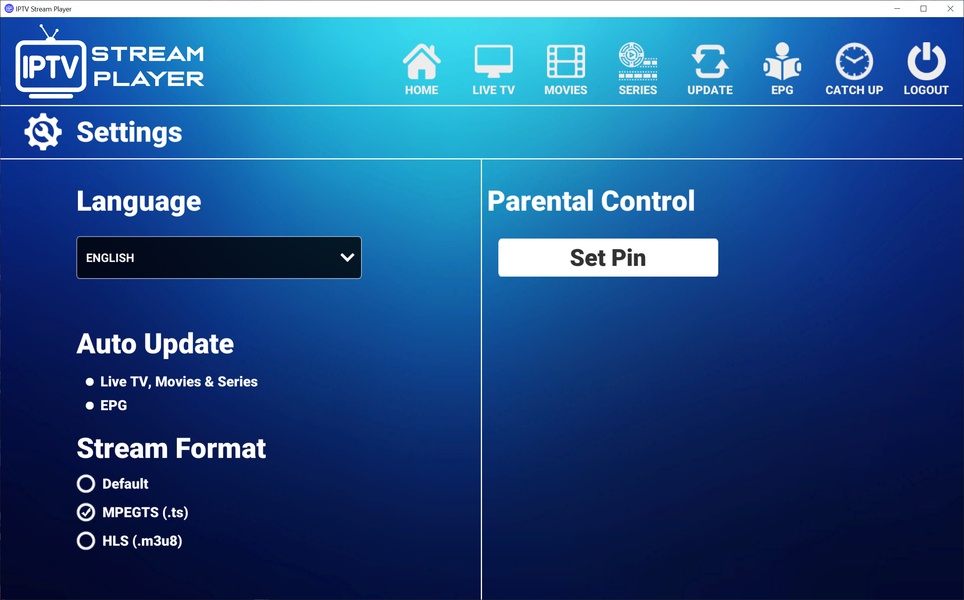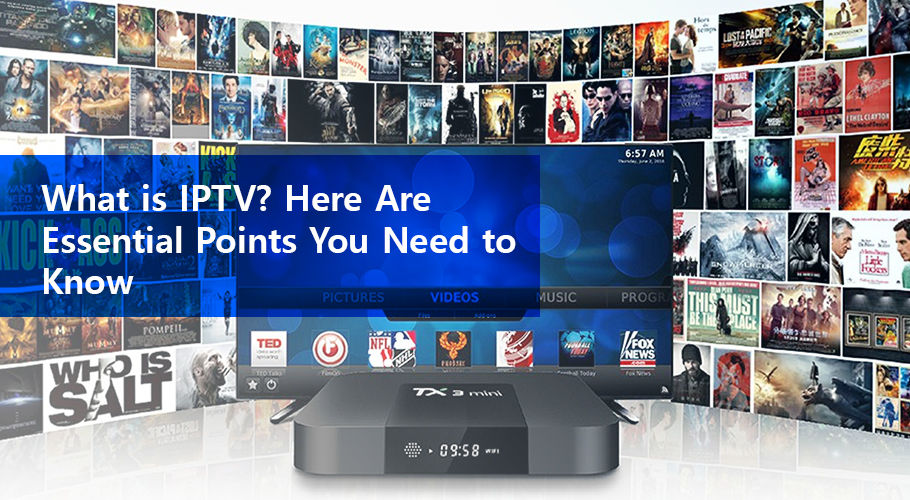IPTV-- A Comprehensive Overview for Beginners
IPTV Explained: Why It's Revolutionizing the Method We Watch TV
The introduction of Internet Method Television (IPTV) represents a pivotal change in just how audiences engage with content. As we discover the ins and outs of IPTV, it ends up being evident that this evolution is not just a trend; it positions substantial ramifications for the future of television consumption and the landscape of digital home entertainment.
What Is IPTV?
IPTV, or Internet Procedure Tv, is an approach of delivering television material online instead than via conventional satellite or cord styles. This innovative method makes use of net protocol networks to transmit video information, enabling viewers to access a vast array of programming straight through their internet link. Unlike standard broadcasting, which relies upon radio waves or cord infrastructure, IPTV allows the streaming of content in a much more flexible and user-centric fashion.
One of the vital benefits of IPTV is its ability to provide on-demand accessibility to a substantial library of programs, films, and live broadcasts. Subscribers can appreciate tailored viewing experiences, consisting of the option to pause, rewind, or document content. In addition, IPTV services commonly include interactive features, such as video clip on need, catch-up tv, and the capability to access numerous devices simultaneously.

Just How IPTV Functions

The procedure begins with material gathering, where various tv channels and programs are put together onto a centralized web server. From this web server, the web content is encoded into electronic styles appropriate for streaming. When an individual selects a program, the IPTV service gets the proper data packets from the web server and sends them to the customer's device.
IPTV normally works via set-top boxes or smart Televisions, which decipher the inbound information and provide the video for seeing. The modern technology makes use of adaptive bitrate streaming to maximize video top quality based on the customer's web rate, ensuring a smooth checking out experience. IPTV often includes interactive attributes such as rewind, time out, and accessibility to an electronic collection, boosting individual interaction. On the whole, IPTV stands for an innovative combination of modern technology that changes typical television viewing into a more dynamic and personalized experience.
Benefits of IPTV
As visitors progressively seek flexibility and modification in their enjoyment selections, IPTV uses a variety of benefits that satisfy these demands. One of the most considerable benefits is the capability to access material on numerous devices, consisting of smart devices, tablet computers, wise Televisions, and computer systems - Iptv. This multi-device compatibility permits individuals to enjoy their preferred programs and motion pictures anytime, anywhere, boosting their watching experience
Moreover, IPTV offers a substantial collection of on-demand content, enabling subscribers to select what to see, when to enjoy it, and exactly how to see it. This contrasts with typical broadcasting approaches, where viewers are frequently constricted by repaired timetables. Additionally, IPTV solutions frequently offer personalization functions, such as tailored referrals based upon checking out routines, enabling customers to find new material suited to their preferences.
Furthermore, IPTV commonly includes advanced functions like cloud DVR capacities, allowing users to tape and store programs for later viewing. Boosted interactivity, such as the ability to stop, rewind, or fast-forward web content, further improves the watching experience. Iptv. Jointly, these advantages position IPTV as an engaging alternative to conventional television, fulfilling the progressing assumptions of today's audiences
Comparison With Typical Television
Typical tv and IPTV existing distinctive checking out experiences, each accommodating different target market preferences. Standard television relies on satellite, cable television, or terrestrial signals, providing a fixed timetable for broadcasting. Viewers are often bound to details time ports to enjoy their preferred programs, which can be troublesome in today's busy environment.
In contrast, IPTV delivers web content using the web, enabling customers to stream programs and flicks on-demand. This versatility makes it possible for audiences to enjoy web content at their benefit, getting rid of the restrictions of a fixed timetable. Additionally, IPTV solutions frequently offer accessibility to a more comprehensive array of channels and web content, including international shows and particular niche styles that typical cable plans may not supply.
Furthermore, the interactivity of IPTV boosts individual interaction, permitting features such as rewind, document, and time out abilities that traditional television does not have. Users can also access supplemental content, including in-depth program guides and audience rankings, improving the general viewing experience.
Ultimately, while conventional television continues to be a staple for numerous customers, IPTV's flexibility and wealth of web content make it a progressively popular option, appealing to those looking for more control over their checking out behaviors.
Future of IPTV
The future of IPTV shows up appealing, driven by improvements in technology and shifting customer preferences. As broadband infrastructure proceeds to boost internationally, IPTV solutions are positioned to provide higher-quality video content with very little buffering and boosted user experiences. This development is matched by the proliferation of wise gadgets, allowing audiences to accessibility IPTV web content on smartphones, tablets, and wise TVs, thus boosting convenience and flexibility.
Moreover, the assimilation of synthetic knowledge and equipment knowing right into IPTV platforms my explanation is anticipated to reinvent material delivery. Personalized recommendations based upon checking out routines will improve individual involvement, making it less complicated for subscribers to find relevant web content. use this link In addition, the consolidation of augmented fact (AR) and virtual fact (VIRTUAL REALITY) innovations holds the potential to create immersive watching experiences that conventional television can not match.
The rise of subscription-based designs and ad-supported streaming services suggests a shift in exactly how consumers are prepared to pay for material, additionally sustaining IPTV's development. As even more consumers look for adaptability and modification in their checking out routines, IPTV is likely to become a dominant pressure in the home entertainment landscape, improving how content is created, dispersed, and eaten in the coming years.
Verdict
To conclude, IPTV stands for a transformative development in tv intake, providing visitors unmatched versatility and control over their checking out experiences. Its capacity for on-demand accessibility, individualized web content, and interactive attributes distinguishes it from traditional broadcasting methods. As modern technology remains to advance, the possibility for IPTV to further influence media usage patterns and reshape the amusement landscape stays substantial. This change emphasizes the relevance of adjusting to emerging innovations in a progressively digital globe.
The development of Internet Protocol Tv (IPTV) represents a critical shift in how target markets involve with material.IPTV, or Net Method Television, is a method of delivering television content over the web rather than with conventional satellite or cable layouts.Utilizing a network of internet procedures, IPTV supplies television material through a series of well-defined processes. Additionally, IPTV solutions frequently offer personalization features, such as customized suggestions based on watching routines, permitting individuals to discover brand-new material suited to their preferences.
Furthermore, internet IPTV services typically give accessibility to a wider selection of networks and material, consisting of global programs and particular niche genres that typical wire bundles may not provide.